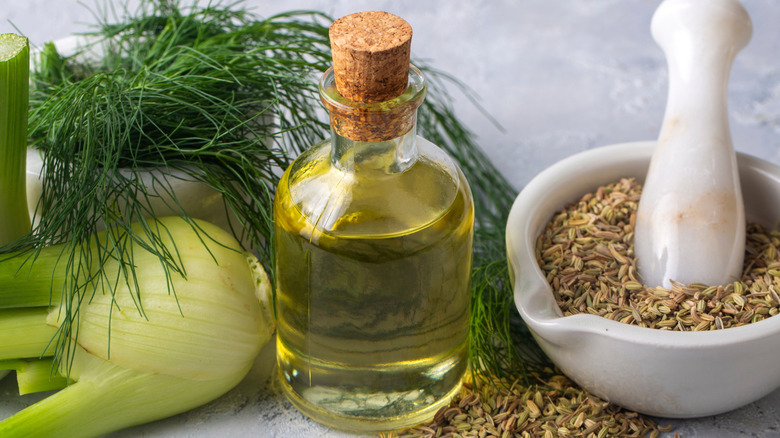
Often, the Mediterranean diet is mistakenly thought to be about indulging in gyros or sipping ouzo. While these foods are part of Mediterranean cuisine, the diet itself prioritizes whole, nutrient-rich foods. This heart-friendly eating plan focuses on unprocessed or minimally processed food such as fruits, vegetables, whole grains, legumes, nuts, and seeds. It also advocates for reducing saturated fats from animal sources, opting instead for healthy fats from olive oil, nuts, and avocados. (Discover how the Mediterranean lifestyle can contribute to longevity.)
A vegetable frequently enjoyed in the Mediterranean area is fennel, and it’s clear why it aligns perfectly with this nutrient-dense eating pattern. A single fennel bulb contains only 73 calories, less than a gram of fat, and offers nearly a third of your daily vitamin C requirement. For those mindful of carbohydrates, fennel remains a wise choice. With 7.3 grams of fiber, it has fewer than 10 grams of net carbs. This fiber also supports heart health by aiding in cholesterol reduction.
Fennel might also positively impact blood pressure, not because it is low in sodium, but due to its substantial 969 milligrams of potassium, a mineral crucial for maintaining a healthy sodium balance. Incorporating more potassium-rich foods like fennel into your diet can be a beneficial step toward improved blood pressure management.
Fennel’s Impact on Blood Pressure and Cholesterol

While you might pass by fennel in the produce aisle, opting instead for familiar greens like spinach or romaine lettuce for your salads, fennel deserves attention. It offers the crisp texture of celery and a mild licorice-like taste. Although it belongs to the same plant family as carrots, it is closely related to herbs such as dill, caraway, and anise.
Potassium-rich fennel might aid in maintaining healthy blood pressure levels, but potassium might not be the only mechanism for blood pressure reduction. A 2013 study in Natural Product Communications explored the effects of fennel oil and coriander oil on the angiotensin-converting enzyme (ACE), which contributes to increasing blood pressure. Both oils were found to inhibit ACE activity and demonstrated strong antioxidant effects, suggesting they could help in supporting overall heart health.
Fennel also includes soluble fiber, which plays a crucial role in lowering cholesterol. This type of fiber binds to cholesterol in your digestive tract, preventing its absorption into the bloodstream. It also aids in eliminating bile from your body, prompting the liver to draw more cholesterol from the blood to produce new bile, ultimately reducing blood cholesterol levels.
A 2011 study in The Egyptian Journal of Hospital Medicine evaluated fennel’s effects on rats fed a high-fat, high-cholesterol diet. The rats that received fennel exhibited lower cholesterol levels and signs of improved health compared to untreated rats, indicating fennel’s potential role in cholesterol management.
Incorporating Fennel into Your Daily Menus

Fennel’s texture is similar to celery’s, but it might not be your first choice for pairing with ranch dressing. Its black licorice flavor isn’t universally appealing, so it’s likely better suited as a flavor enhancer in your favorite dishes. Consider fennel as a way to add a fresh, natural twist to meals. It pairs exceptionally well with citrus, garlic, and olive oil, so keep this in mind when experimenting in the kitchen. Model and TV host Brooke Burke infuses fennel in her water to stay hydrated.
Being a staple in the Mediterranean diet, fennel naturally complements fish. If you own a juicer, one option is to juice fennel stalks to create a light vinaigrette for baked fish. You can also thinly slice the bulb, toss it with olive oil and lemon, and roast it over fish for a bright, aromatic flavor. Alternatively, try braising fennel as a side dish with preserved oranges, white wine, and garlic. Another simple idea is to sauté thinly sliced fennel in olive oil, then add capers, parsley, lemon zest, and a splash of lemon juice. You can also try this recipe for poached salmon and fennel salad.
“`




